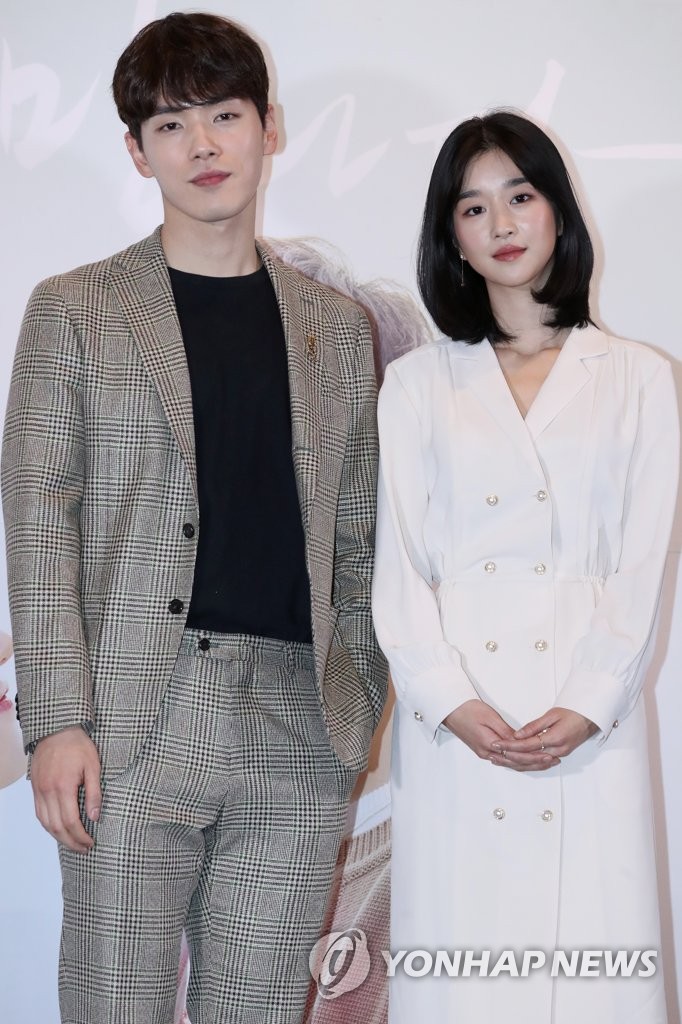
The world of Hallyu is no stranger to scandals. Indeed, many might argue that scandals pop up with alarming and often unmerited frequency. After all, this is an industry where two consenting adults being in a relationship is labelled a dating “scandal”. Netizens have an uncanny ability to create firestorms out of even the most innocuous situations.
Every once in a while though, a Hallyu scandal arrives that genuinely deserves the title. Such is the case with the story of Kim Jung-hyun and Seo Ye-ji.
Not long ago, Kim and Seo were two actors at the top of their game. Kim was on a winning streak with acclaimed turns in popular dramas Crash Landing on You and Mr. Queen. After many years teetering on the edge of mass success, Seo had rocketed to Hallyu superstardom with her magnetic performance in It’s Okay to Not Be Okay. Besides starring in the film Remembering First Love together in 2018, there was no known connection between Kim and Seo.
That all changed in April of 2021. It began with Kim alone in hot water, dogged by dating rumors with Crash Landing on You co-star Seo Ji-hye (they have both denied a romantic relationship), embroiled in a messy business dispute with his management agency, and plagued by returning whispers of eccentrically unprofessional behavior while making 2018 drama Time. It was when people began to take a closer look at the Time allegations that Seo Ye-ji emerged as co-protagonist of this scandal.

While filming Time, Kim had refused to engage in any skinship with co-star Seohyun, despite them being the drama’s romantic leads. This caused emotional distress and great inconvenience on set, as many script and filming changes had to be made to accommodate Kim’s unreasonable demands.
According to private texts between Kim and Seo Ye-ji released by the godfather of Hallyu gossip itself, Dispatch, Seo was the mastermind behind this behavior. During the filming of Time, Seo and Kim were in a relationship, and Seo directed Kim to refuse all romantic scenes and to limit interaction with any female staff, an order he evidently followed.
Several major Hallyu stars, multiple dating scandals, allegations of unprofessionalism, and hard evidence of an abusive relationship dynamic: it’s no surprise that the story blew up. But much of the conversation around the scandal has been shallower than expected. What has been framed by the majority of press outlets and internet commentators as a tawdry gossip tale, is actually fully of serious and thought-provoking issues, worth examining in earnest.
As with most Hallyu scandals, the press itself is a major player in this story. Celebrity gossip reporting isn’t exactly known for its stellar quality, but the coverage of this particular scandal stands out as exceptionally poor. In fact, the press coverage is one of the parts of this story most in need of unpacking.

One issue is privacy, or rather the lack of it. This is not a new problem when it comes to press coverage of Hallyu celebrities. It’s easy to become desensitized to the violations of privacy that celebrities experience when they are so common. But it is important to recognize that stalking someone outside their home (as the press did to capture photos which fueled Kim and Seo Ji-hye’s dating rumors) or releasing private text messages (the crucial evidence that brought Seo Ye-ji into the scandal) is not acceptable.
There is an argument to be made that privacy can sometimes be violated in the interest of accountability. This idea could be applied to the publication of Kim and Seo Ye-ji’s text messages, and it’s a matter of personal opinion whether you think the release of personal information was right. Regardless of your stance on Kim and Seo’s texts, however, it is fairly alarming that gossip reporters were able to obtain (in an as yet undisclosed way) private texts. If they can do it for this story, what other, potentially less worthy stories may they do it for in the future?
Another shameful aspect of the scandal’s coverage has been the sexist tone adopted by many reporters. Undoubtedly, Seo has born the brunt of the backlash. Her actions were wrong, so a certain amount of harsh commentary is merited. Additionally, her PR team released a poorly conceived official statement that seemed too concerned with making excuses, especially when contrasted with Kim’s repentant official response. Neither of these elements helps her case, but misogynistic reporting is also a factor in her reputation’s current annihilated state.

The sexist coverage mostly manifests in the way reporters frequently frame Seo as a femme fatale, a seductive villainess. The idea of the femme fatale has a complicated history, filled with both sexist and empowering interpretations of the archetype. What’s happening here definitely falls on the misogynistic end of the spectrum, with Seo’s conniving sexuality emphasized at the expense of any nuanced look at her actions and their consequences.
Unfortunately, these misogynistic attitudes filter down from the press to the internet, where anonymous commentators are having an unsavory field day with this scandal. In particular, there has been lots of gleeful (and almost entirely unfounded) speculation about Seo’s potential romantic ensnarement of other high-profile Hallyu male stars.
This sexist framing of Seo’s behavior is problematic, and it also indicates that the press has questionable priorities in their reporting of this scandal. Instead of focusing on actual investigating, they are squeezing every bit of interest they can out of each juicy detail, even unproven ones. This strategy has resulted in tons of speculative stories, and pretty much no additional information or clarification in the weeks since the story broke.

Unfortunately, this scandal serves as a strong example of unprincipled gossip reporting, and how that feeds toxic internet commentary. It also highlights an apparent lack of ability on the press’ part to shift their approach depending on the content of a scandal. A gossipy tone could be perfectly appropriate for many celebrity stories — but certainly not this one, given the two serious and sensitive issues at the heart of it.
The following six paragraphs contain descriptions of relationship abuse. Readers who might find this content distressing and/or triggering should proceed with caution.
The first of those issues is abuse. Make no mistake, this is a story about an abusive relationship, specifically an emotionally abusive relationship. One thing to note regarding the following discussion is that while Seo’s representatives have claimed that the abusive behavior in Seo and Kim’s relationship was mutual, as of now, no additional evidence supports that claim, unlike the texts which explicitly illustrate Seo’s actions. So for the purposes of this examination of emotional abuse, Seo will be treated as the alleged abuser and Kim as the alleged victim.
Emotional abuse is a term that encompasses a variety of actions, including manipulation, controlling tendencies, verbal aggression, intentional humiliation, and gaslighting. Of course, there is a difference between someone saying something cruel to their partner once or twice, and someone perpetrating abuse. What makes a relationship emotionally abusive is when behaviors like this are repeated, often regularly and at high levels of severity, becoming an integral part of the relationship dynamic.

That certainly seems to have been the case with Kim and Seo. Reading their text messages makes it painfully clear that the control Seo exerted over Kim was deep and far-reaching. She dictates his behavior in texts full of barely veiled threats and he reports back to her in great detail and with earnest enthusiasm. There is a chilling casualness to their text conversations, like this is something they have done before, perhaps indicating that this abusive dynamic was longterm.
Emotional abuse can be harder to spot than other types of abuse because it is so primarily psychological. This fact does not diminish the severity of emotional abuse, the responsibility the abuser should have to shoulder, and the pain the victim can suffer. There is some indication that Kim and Seo’s relationship took a serious mental health toll on Kim. He ultimately dropped out of filming Time, after which he went on a long professional hiatus, and his representatives maintain that he continues to suffer from mental health challenges.
Despite the clear seriousness of the issue at hand, much of the discussion about this scandal has danced around the unacceptable nature of Seo’s actions. Indeed, some of the coverage has taken an almost humorous tone, as if Kim and Seo’s relationship was a comical oddity. This wouldn’t be the first time the press and general public has failed to reckon with the seriousness of relationship abuse, and it is worth noting that male abuse victims like Kim often have their experiences especially downplayed.

The details of Seo and Kim’s abusive relationship are hard to hear, and the insensitivity of much of this scandal’s press coverage and resulting public discussion is hard to witness. But a story like this — which becomes a topic of widespread conversation because of its celebrity connection — can provide opportunities to discuss an important yet somewhat taboo topic like emotional abuse in an unusually open way.
That same potential can be seen in relation to the second serious issue at the heart of this scandal, which is toxic behavior in the workplace. Kim’s actions while making Time can be explained by the abusive relationship he was in, but they can’t be excused. He was unpleasant and unprofessional, forcing Time’s cast and crew to bend to his will, and creating a no doubt horrible work atmosphere.
Despite the egregious and relatively public nature of Kim’s misconduct, it took years for any of his behavior to fully come to light. This means that most if not all of the cast and crew of Time did not feel able to share their experiences. It is always difficult to speak up against a star or professional superior, and it might be even harder in a hierarchal society like South Korea, where power dynamics are strictly adhered to within and without the workplace.
This context does make you question why Kim’s own bosses (his management agency, or the drama’s production company) did not intervene, but it also explains why it is likely that the cast and crew of Time felt compelled to stay silent in order to protect the show, and their own careers.

No one should be put in a position like that, but it is an all too common experience. And here, you can see again that one upside of a disheartening celebrity scandal is that it provides a public arena to talk about a very real and pervasive issue, in this case toxic work environments. For a past example of this in action, look to Red Velvet’s Irene’s Gapjil scandal. That story sparked conversation and increased awareness around a very specific type of hierarchal bullying, often seen in South Korean workplaces.
Kim and Seo’s story is a properly scandalous scandal, and just a horribly unpleasant tale. But in terms of providing opportunities for important conversations, it is the cream of the crop. Toxic press practices, abusive behavior, and poisonous workplace dynamics are all at play in this scandal, and all worth discussing. Those exact toxic press practices have derailed some chances for discourse, hiding this story’s important aspects behind a wall of gleeful gossip mongering.
Hopefully, at least some individuals will be too smart to fall for that, and will see the story for what it is: A distressing scandal — one that also provides a valuable chance to look at a handful of crucial issues head on.
(Healthline, Nate, Naver: [1] [2] [3] [4], Osen, Psych Central, South China Morning Post, Web MD, The Week. Images via Allure, Gold Medalist, Harpers Bazaar, Marie Claire, MBC, Singles, The Star, Yonhap News)


